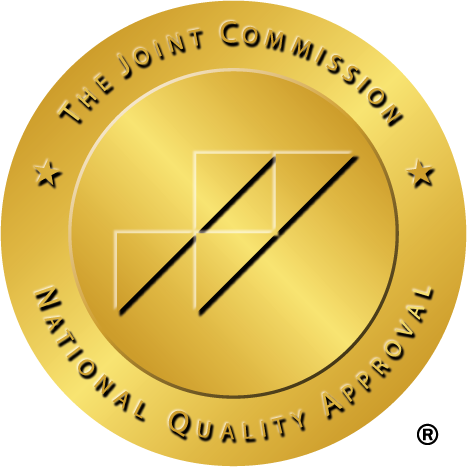Ensuring a successful therapeutic process starts with the intake process, a crucial step in laying a solid foundation for a positive working relationship with providers and their patients. But not all intake processes are the same, and the specific type used depends on the needs of each patient.
Perfecting the delicate balance of fully disclosing a patient’s mental health background and remaining mindful of their privacy is essential during intake. This requires an effective mental health intake assessment that captures the entirety of a patient’s history and allows for the best-informed decisions regarding their treatment.[1]
SPEAK WITH AN ADMISSIONS COUNSELOR TODAY
What is an Intake Assessment?
An intake assessment is a comprehensive mental health evaluation and assessment process conducted by mental health professionals to gather essential information about a client’s background and overall functioning. This assessment is crucial in understanding the individual’s unique needs and challenges, which helps develop a tailored treatment plan or mental health services that addresses those requirements.
The initial intake assessment typically involves a conversation with the client to collect pertinent information. The interview can be conducted as an inpatient or outpatient assessment, depending on the situation.
The mental health professional may use various techniques to facilitate the assessment process. This can include questionnaires, checklists, and standardized assessment instruments. These tools help ensure that all relevant information is collected systematically and nothing is missed.
Following the initial interview, the assessment conductor may require additional evaluations based on the information gathered during the interview. This ensures that the intake assessment is as accurate as possible.
After the intake assessment, the collected data will be analyzed to identify the client’s needs. This information will create a treatment plan or support system to address the client’s specific concerns. The plan will be reviewed with the client for potential adjustments before it is put into action.
Why are Mental Health Intake Assessments Needed?
Mental health practitioners conduct assessments to acquire data on patients’ potential risk factors, such as previous traumatic experiences and multiple stressors. Early identification of mental health disorders or even drug use can avert the progression of severe mental disorders.
Using this data, experts can develop comprehensive treatment plans encompassing medication and psychotherapy to address patient concerns effectively.[2]
Mental health assessments delve into the patient’s past and present situations to uncover the reasons behind their symptoms. This enables the therapist or psychiatrist to create tailored treatment plans to alleviate the patient’s distress and combat the underlying causes.
Implementing a mental health intake assessment eliminates the limited applicability of a generic treatment approach. In addition, this appraisal enables therapists to monitor progress effectively and adjust therapies as needed, ensuring optimum outcomes are achieved during the treatment process.
What to Expect During a Mental Health Intake Assessment?
The mental health intake assessment collects crucial information from patients and their loved ones, including medical history, medication details, behavioral health patterns, and work or school performance. This procedure also assesses the patient’s psychological state and symptoms to determine the necessity for prompt intervention.
Below are some of the elements typically included in a mental health intake assessment:
Intake Forms and History Collection
Upon your initial intake appointment, your clinician will request that you complete intake forms. These documents will inquire about your personal and family medical history, life history, employment and educational background, and potential substance abuse issues.
You will also be expected to provide details regarding the length and severity of your present symptoms. Accurate responses to these inquiries are crucial in aiding the clinician’s comprehension of your condition and achieving an appropriate diagnosis.
Psychiatric Evaluation
You will have a confidential discussion with a clinician during a psych evaluation. This evaluation aims to evaluate your history, symptoms, behavior, and emotions related to your current issue. In addition, the clinician will ask targeted questions to determine how your current problem has impacted your overall well-being.
This assessment usually takes place over several sessions, and you must be candid and transparent about your concerns.
Clinician’s Approach
Clinicians strive to establish a mutually beneficial partnership with you throughout the initial assessment. They will attentively listen to your challenges, provide precise and pertinent details, enlighten you about your condition, and actively engage you in the treatment procedure.
Additional Assessments and Referrals
Upon assessing your mental health issues, the clinician may conduct additional evaluations or advise further testing. For example, suppose you’re going through depression or anxiety disorders. In that case, you may undergo a thorough psychological assessment or a diagnostic examination to uncover any underlying physical health problems influencing your symptoms.[3]
Moreover, based on your specific requirements, the clinician might suggest referrals to other mental health care providers or services, such as social workers or substance use support groups.
Who Conducts a Mental Health Intake Assessment?
A mental health intake assessment can be conducted by a variety of professionals, including:
- Psychiatrists – To assess mental health and provide treatment, you should consider seeing a psychiatrist. These professionals possess medical qualifications and specialize in mental health disorders. They utilize medication and therapy to diagnose and treat mental health problems while commonly working in private practice and mental health facilities.
- Clinical Psychologists – Clinical psychologists are licensed professionals with a doctorate in psychology. They offer mental health treatment and can diagnose mental health conditions by conducting intake assessments. They use different therapeutic approaches to help their patients but do not prescribe medication directly.
- Clinical Social Workers – Licensed clinical social workers (LCSWs) have a master’s degree in social work and have completed licensing requirements to practice therapy. They can conduct mental health assessments and provide counseling services. LCSWs have expertise in treating individuals, couples, and families and may specialize in specific areas of mental health treatment.
- Mental Health Counselors – Licensed Mental Health Counselors (LMHCs) hold a master’s degree in mental health counseling or a related field. They are trained to conduct mental health intake assessments and provide counseling services. LMHCs have expertise in evaluating and treating mental health disorders and may specialize in specific therapeutic techniques.
SPEAK WITH AN ADMISSIONS COUNSELOR TODAY
Mental Health Intake Assessment FAQs
To get a complete understanding of your mental health and create a personalized treatment plan, a mental health clinician will assess your mental health history, medical background, family history, and lifestyle habits. They’ll ask about your internal challenges and how they affect your daily life to develop a plan that addresses your unique needs.
A typical mental health intake assessment can last anywhere from one to several hours, depending on the complexity of the issue and the amount of information needed for an accurate diagnosis.
After a mental health intake assessment, your clinician may recommend further tests or referrals to other professionals based on their findings. They may also suggest additional therapeutic interventions or medications to help manage your symptoms more effectively. In addition, your clinician will provide guidance and support throughout your treatment to ensure you receive the best care possible.
Depending on your insurance plan, mental health intake assessments may be covered in full or partially. It is essential to contact your insurance provider before scheduling an appointment to determine what services are included in your coverage.
In most cases, counseling services provided by licensed clinicians are generally covered. In some cases, additional medical tests or referrals for specialized treatments might not be protected and require out-of-pocket payment.
It is common to feel uneasy about sharing personal details regarding your mental health. However, it is essential to remember that your clinician is experienced and trained in providing a safe and confidential environment for you to express yourself. If the intake assessment makes you anxious or overwhelmed, let the clinician know. They will adjust their approach and provide support so you can go at your own pace.
Related Topics
Sources
[1] Desai, G., Narasimha, A., Harihara, S. N., Dashrath, M. S., Bhola, P., Berigai, P. N., Gandhi, S.,& Chaturvedi, S. K. (2014, July). A study on first intake assessments of in-patient referrals to psychiatric rehabilitation services. Indian journal of psychological medicine.
https://www.ncbi.nlm.nih.gov/pmc/articles/PMC4100406/ on May 24, 2023
[2] U.S. Department of Health and Human Services. (n.d.). Psychotherapies. National Institute of Mental Health.
https://www.nimh.nih.gov/health/topics/psychotherapies on May 24, 2023
[3] Mental status examination – StatPearls – NCBI Bookshelf. (n.d.-d).
https://www.ncbi.nlm.nih.gov/books/NBK546682/ on May 24, 2023


